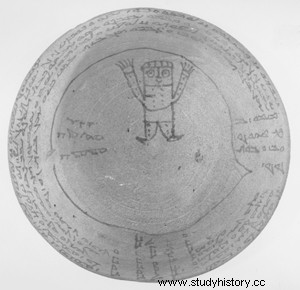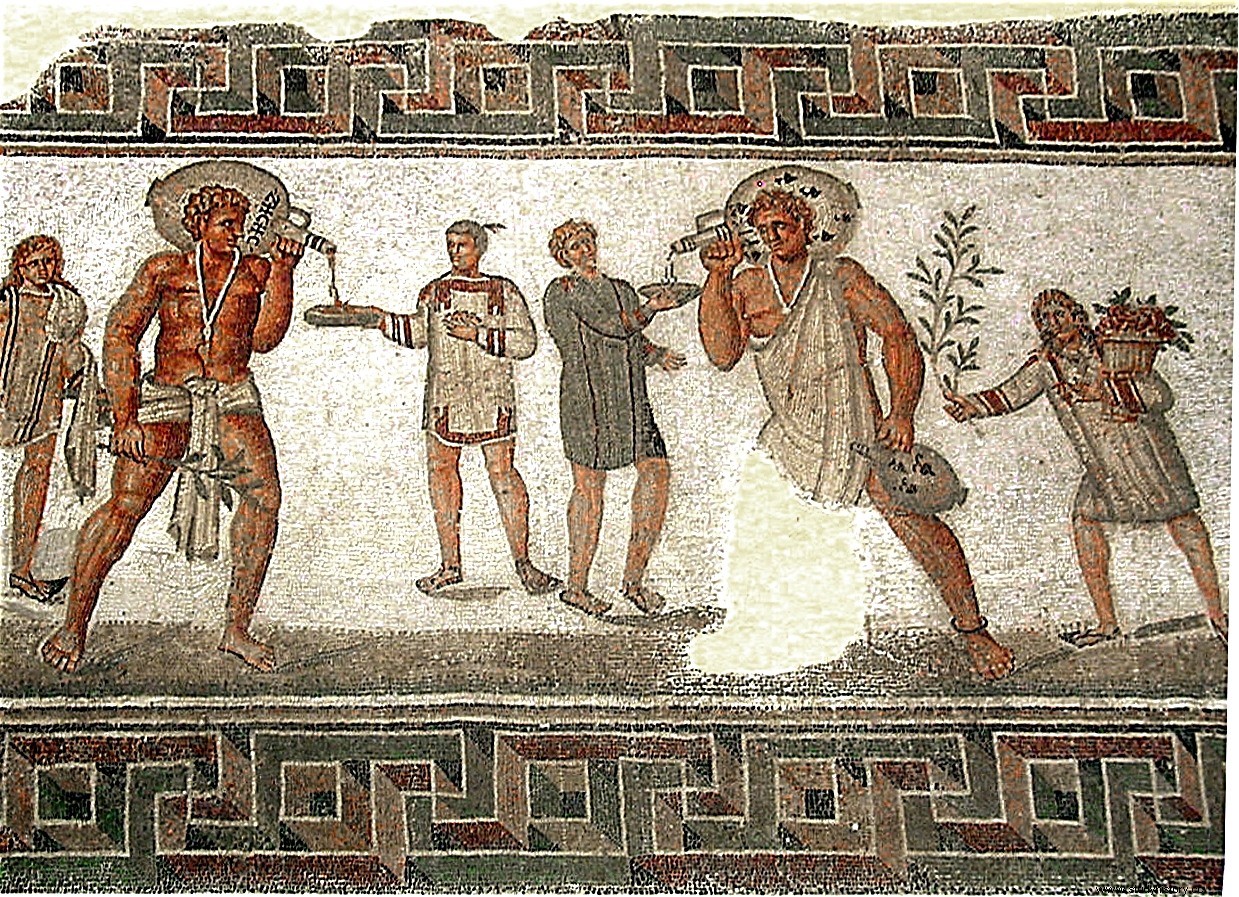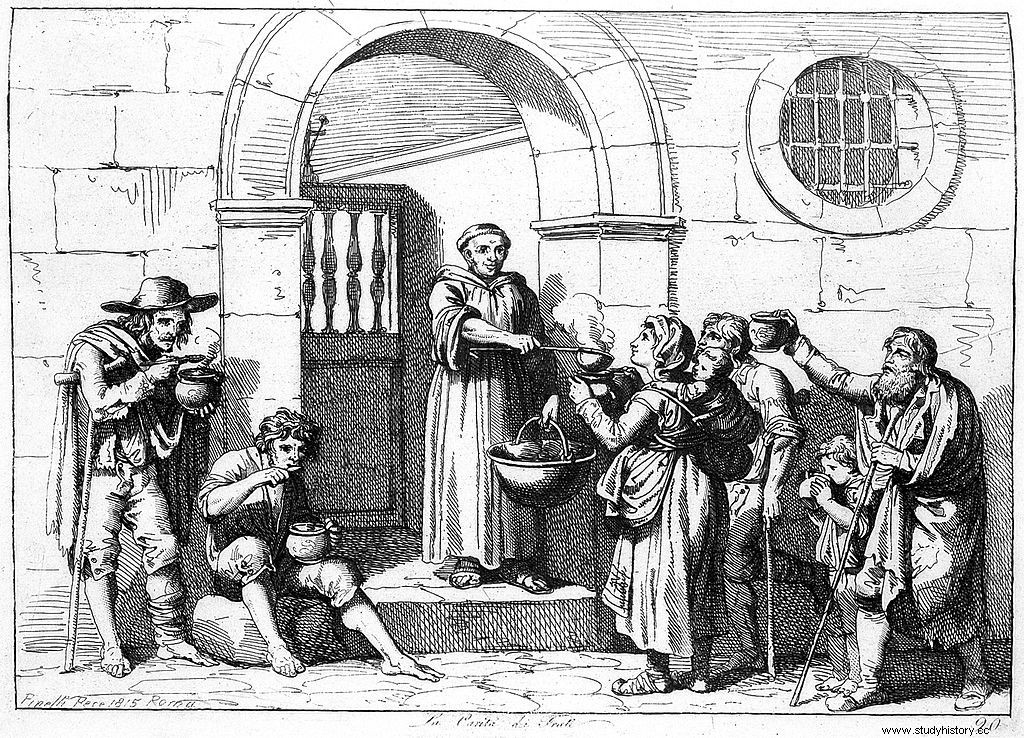Origins of Christianity
The Christian religion started as a subset of Judaism. In the third and fourth centuries, Christianity developed significant differences from Judaism. Jesus' figure was Jewish, and his teachings called for support for the Old Testament (or Torah), since the New Testament had not yet been written. The Romans destroy the Second Temple in part spurred to the deviation from Judaism. This event was catastrophic for Jews and Christians. Therefore, many re-examined their faith. Jewish leaders decided that they would no longer actively seek out converts. Jewish religious figures made this decision because of the anxiety associated with their monumental defeats and prejudices from the Romans. Christians, on the other hand, had waived the requirement that new Christians should convert to Judaism years before the destruction. This greatly strengthened the number of Christians, as converting to Judaism is a lengthy and rigorous process.

Conflicts between the apostles:curses
Jesus' death divided the Christian faith, with followers promising allegiance to various apostles. This conflict led the apostles to ask God and Jesus to curse their rivals, as documented in the Acts of the Apostles. This book describes how God curses Zechariah for expressing his doubts about the birth of John the Baptist. The passage reads:"The angel said to him, 'I am Gabriel. I stand in the presence of God, and I am sent to speak to you and to preach this good news. And now thou shalt be silent, and shalt not be able to speak until that day, because thou hast not believed my words, which shall be fulfilled in their appointed time. ' The book also mentions God's punishment of Judas, which led to his death.
History of the Curse
Curses seem foreign to the modern Christian, since God is a being of love and forgiveness. This view of God is consistent with the behavior seen in the New Testament. On the contrary, God in the Old Testament is strict against humanity. The reason for the curse's presence in the Christian tradition is the other religions of the time. The polytheistic religions that were common during the formation of Christian theology had stories of cursing. Thus, early Christian faith also included the practice.
Polytheism in the Christian tradition
As a result of surrounding cultural influences, the basis of early Christianity was polytheism. This can be hard to believe, because many Christians today speak negatively about polytheism and view this type of belief as evil. Although this view of polytheism in the faith did not develop until Christianity and other Abrahamic religions were the state religions of powerful empires, polytheistic influence was thus diminished. Before this, however, Christian faith had to coexist in a region where the Sumerians (and later the Akkadians) were the most powerful force. Both of these empires had polytheistic religions that greatly influenced early Judaism and Christianity.
Lilith
An example of biblical polytheism is the figure of Lilith in the Bible. A group of Jews in 700 - 1000 AD. believed that Lilith was the first wife of Adam, a view that has been adopted by many Christians today. The video «Who is Lilith? Adam's first wife? "Does the case mean that Lilith refers to a type of female night demon and resembles in function a succubus. The Sumerians called this type of demons ki-sikil-lil-la-ke, the Akkadians called them lilitu, and the Greeks called them Lamia. notice how similar these terms are to Lilith. The word "Lilith" comes from Hebrew. , therefore, the association with the little one is clear.

Holy Trinity
The Holy Trinity is also another sign of Christian polytheism. This is because all three entities that make up the trinity are equally divine. The three components of the Trinity are the Father (God), the Son (Jesus) and the Holy Spirit. A popular way that Christians unite this polytheistic aspect of religion is to look at all three entities as different aspects of the same God. This is similar to monolatrism. Religions that are monolithic believe in the existence of many gods, but worship only one. The importance of the Holy Trinity, and how to reconcile the monotheistic nature of religion with the concept, remains a topic of scientific interest.
Music in early Christian worship
It is clear that songs have been integrated into Christian worship since the beginning. This is stated in the book of Psalms, which gives readers prayers and songs of worship. The Old Testament indicates that hymns should be accompanied by stringed instruments. However, Christians were not the first to practice worship through music. This custom was already well established in Judaism, and is similar to the Greek practice of hymns. In particular, the first-century Jewish scholar Philo encouraged followers to compose their own hymns. He writes, "Then the President rises and sings a hymn composed as an address to God, either a new one of his own composition or an old one of poets from an earlier time who have left behind hymns ..." The encouragement of early Christians and Jews to develop personal ways to worship is fascinating.

How Christianity is mixed with pre-established belief systems
India
Christians in India believe that the apostle Thomas came to the region in the first century, bringing with him Christianity. This is highly possible, as it is known that trade took place across the Indian Ocean. St. Thomas first preached to the existing Jewish community. Thereafter, St. Thomas increased its scope to include interested Hindus. The earliest archaeological evidence for Christianity in India, a collection of stone crosses, dates to the eighth century. The crosses are clear Christian objects, but their design contains Buddhist and Hindu symbols. The St. Thomas Cross, also known as the Persian Cross, contains Hindu symbols. These include markara, sea creatures that are guardians of Hindu mythology.

East Africa:Aksum
The Kingdom of Aksum adopted Christianity in the third century. Scholars believe that the Christian faith spread to this region through trade along the Indian Ocean and the Red Sea. Missionaries also helped the faith, but traders made the most of it. This is because merchants stayed in the Aksum region for long periods, creating their own communities for worship. These communities slowly got the locals interested.
Slavery
Early Christian leadership widely accepted the ownership of slaves, and set strict guidelines for the proper treatment of slaves. For example, Augustine claimed that God wants masters to whip their slaves as a form of punishment, but that they should not do so out of anger. However, some Christian sects opposed slavery. One such group was the Martians. This sect believed that there was no difference in value between man and slave, or man and woman. Early Christian theology states that slavery is the consequence of sin, and therefore it was not created by God. The purpose of punishing a slave was to teach them to become a better Christian. Slave owners often punished female slaves for lack of modesty. Punishment methods included starvation, beatings and incarceration.

Fasting
Fasting was a big part of early Christianity. A fast was usually done when one suffered a catastrophic event. Early Christians and Jews believed that fasting and fervent prayer would help their problems. Several reasons to fast include addressing one's sins, one is in grief, ritual purification and magic. Fasting helps to put one in an emotional state, and thus the desired result of the ritual is easier to achieve. Fasting also gives one control over a stressful situation, something one who feels helpless desperately wants.

Charity
Early Christians were charitable in nature. For example, first-century Christians in Jerusalem organized free communal meals. Wealthy members of the congregation provided funds for these events. The Christian author Tertullian provides insight into the proper use of money in the faith, "Although it is a kind of coffin, it does not consist of money paid in entrance fees, as if religion were a matter of contract. Every man takes once a month a coin - or whatever he wants, and only if he wants it, and if he can ... You can call them the fund of piety, for they are not used at banquets or drinking parties or ungrateful eateries, but to feed the poor and bury them. them, for boys and girls who lack property and parents ... provided it is for the sake of God's school, become the pensioners to their confession ... "

Sexuality
The role of women in many cultures has been linked to their ability to reproduce. This is a view that was also held by early Christians, but the women of the faith in this time period experienced more independence through their roles in church life. The surrounding Roman culture associated the relationship women had with men to their value, although women had a lot of freedom when it came to running the household. Divorce was also common, and women often became widows because their husbands were older.
Writings of Paul
The Apostle Paul challenged the idea that a woman's value comes from her marital status in the letter to the Corinthians, "Now I say to the unmarried and widows:It is good for them to remain unmarried, as I do. But if they can not control themselves, they should to marry, for it is better to marry than to burn with passion. " He also calls for equality in marriage through the passage, "The wife has no authority over her own body, but gives it to her husband. In the same way, the husband does not have authority over his own body, but gives it to his wife. " These statements clearly differ from the Roman view of marriage and the role of women. Paul also said that married couples should love one another as Christ loves mankind. This was revolutionary because Roman culture viewed marriage more as a transaction.
Lust
Desire was also a major topic of discussion. Paul believed that both men and women should not commit adultery and lust should be avoided. Roman culture allowed men to be unfaithful to slaves and unmarried women, but women faced severe punishment for the same behavior. The theologian Augustine believed that sex should only be for reproductive purposes, but if sex for lust must occur, it must be in the bond of marriage. He also thought it was wrong for a married couple to engage in anything other than penetrating vaginal sex, as this is the only way impregnation is possible.
Celibacy
Many positions in the Christian church require celibacy. Early Christians had great respect for those who chose this lifestyle. They viewed people who were celibate as being closer to God. Many Christians at the time believed that sex was born of sin, and God did not want mankind to reproduce in this way. Proof of this is the creation of Adam and Eve, which was done without sex. However, being celibate was not easy. This was due to societal pressure to get married. Thus, many married couples were celibate together. Celibacy was very attractive to women because it allowed them to have more freedom. A man's whims did not limit them, and they did not have to worry about dying in childbirth.
Early Christianity:An Overview
Christianity has its roots in Judaism. Over the centuries, the difference between the two faiths became clear. The biggest difference that developed is that Christians try to convert others, while Jews are not interested in getting converts. Judaism was not the only faith that influenced Christianity. The polytheistic influence of Sumer and Akad can be seen through Lilith. The Holy Trinity is another example of polytheistic thinking. Jesus' teaching emphasizes the importance of being charitable. Common meal events common in Jerusalem from the first century were interpretations of these teachings. Christian doctrine also provided information about sexuality, and advocated for more freedom for women. Unfortunately, those in slavery were not included in this better treatment. Biblical texts called for severe punishment for slaves, as they thought it would make them better Christians. Christianity has spread throughout the world, making it the most popular religion practiced today.
